Finance sector development
 Regional cooperation and integration
Regional cooperation and integration
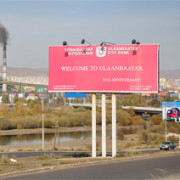 Regional cooperation and integration
Regional cooperation and integration
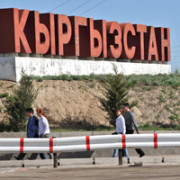 Finance sector development
Finance sector development
 Miscellaneous
Miscellaneous
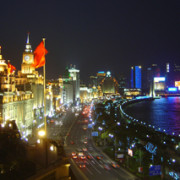 Regional cooperation and integration
Regional cooperation and integration
 Industry and trade
Industry and trade
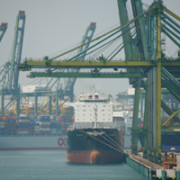 Regional cooperation and integration
Regional cooperation and integration
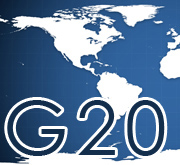 Governance and public sector management
Governance and public sector management
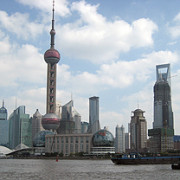 Finance sector development
Finance sector development

E-commerce in Asia brings international price arbitrage opportunities

Cross-border e-commerce is booming in the Asia and Pacific region. And exchange rate fluctuations play a key role in these transactions. In their quest for the best deals, consumers in the region are taking advantage of exchange rate movements, and shop abroad whenever the exchange rate is favorable. Our research proves that short-term international price arbitrage is occurring—an important finding for monetary policy and the private sector.
Development via regional integration – Mongolia’s chance for a prosperous future

Regional integration offers Mongolia the opportunity for a more prosperous future. But the country has lagged in this effort, which is surprising given its geographical location where bold integration initiatives have been launched, such as the People’s Republic of China’s (PRC) “Silk Road Initiative,” and where economic alliances have been strengthened under Central Asia Regional Economic Cooperation (CAREC) and Shanghai Organisation for Cooperation (SCO).
Is regional economic integration in Central Asia a doomed vision or a promising future?

Central Asia has for centuries been seen as a neglected Russian “backyard,” but international interest in the region has increased over the last two decades because of its vast stores of energy and natural resources. But to achieve a brighter future the region must pursue economic integration. In the early 1990s, Kazakhstan, Kyrgyz Republic, Tajikistan, Turkmenistan, and Uzbekistan became independent countries with the collapse of the Soviet Union. The abrupt separation from Moscow, the sudden interruption of economic relations under the Soviet Union, and the unprepared transition from state-directed to market economy created a deep economic crisis in all five countries. The beginning of this century saw their economic systems change and stabilize—but this occurred as these countries disclosed strong authoritarian trends.
US dollar outlook: Secular stagnation and the threat from the East

In the eyes of many commentators, the US dollar’s reign as the global reserve currency is under threat from two angles. The first comes from within the US—a permanent deficiency in demand or secular stagnation; and the second from the People’s Republic of China (PRC), and in particular from a fully convertible yuan. In a recent seminar tour, which covered the Asia and the US, including the Asian Development Bank Institute, we spelled out why these fears are overdone. Far from being in decline, the US is in the ascendancy in our view. We summarize these arguments here.
Was it all ‘nirvana?’ Why the emerging country gloom is mistaken

Many emerging markets assets submerged in 2013 and continued to do so in early 2014. The negative reaction of currency and stock and bond prices in several emerging markets to a cautious statement (“taper talk”) by US Federal Reserve Chairman Ben Bernanke in May 2013 was swift. In early 2014, new-year recommendations by Wall Street´s biggest banks advised clients to cut their emerging-market allocations, for a diffuse variety of reasons such as elections, violence, lack of reform, and growing debt burdens.
Can the PRC win the hearts and minds of Africa?

As economic power shifts from West to East, one of the key players affecting Asia’s rise is Africa. But as is often the case with Africa, it is often overlooked. So much is written about the rise of the BRICS countries. Indonesia, Mexico, and Turkey have recently been added to the global growth trackers’ lists. But what about Africa?
Government procurement – key element in TPP; Missed opportunity in RCEP?

Government procurement has been treated quite differently in trade agreements initiated by the US than in those that have been led by Asian governments. US-led trade agreements, including the Trans-Pacific Partnership Agreement (TPP), incorporate government procurement commitments as an important element. In contrast, Asian-led trade agreements omit or minimize government procurement provisions. The parties to Asian agreements, such as the Regional Comprehensive Economic Partnership (RCEP), should consider the benefits of including government procurement in their trade pacts.
G20 and international economic policy coordination

When G20 Leaders met in April 2009 they agreed on coordinated fiscal stimulus in response to the unfolding financial crisis. This explicit coordination addressed the concern that any one country’s stimulus would largely flow overseas through the external account, benefitting the global economy but not doing much to boost domestic demand. This concerted stimulus seems to have been successful. In the face of a dramatic collapse in financial systems in much of the advanced world the fiscal stimulus put a floor under contracting GDP. The People’s Republic of China’s (PRC) huge stimulus produced a swift return to 10% growth in 2010.
Why is the PRC showing signs of overheating despite slowing economic growth?

The People’s Republic of China’s (PRC) economy has shown signs of overheating despite a sharp slowdown in economic growth, suggesting that, constrained by the supply of labor, its potential growth rate might have fallen significantly from its past level. With the priorities of the PRC’s authorities shifting from raising economic growth to curbing inflation, they are expected to change their stance on macroeconomic policy, including monetary policy, from easing to tightening. As a result, the PRC economy is likely to slow in 2014.
What should Europe do to fix its financial system?

Over five years after the onset of the 2008 global financial crisis, the EU financial system remains in a fragmented state. Banks do not lend to each other across borders without asking for a significant premium. In the larger eurozone countries, cross-border retail banking remains a negligible source of credit and thus could not compensate for the dysfunctional interbank market. As a result, in many European countries, credit for households and businesses—who mostly rely on banks rather than capital markets for financing—remains costly and limited, inhibiting opportunities for economic growth in the region.


Search
Subscribe / Connect to Asia Pathways
Subjects
- Agriculture and natural resources
- Blog
- Capacity development
- Climate change
- Economics
- Education
- Energy
- Environment
- Finance sector development
- Gender
- Governance and public sector management
- Health
- Industry and trade
- Information and Communications Technology
- Infrastructure
- Miscellaneous
- Population
- Poverty
- Private sector development
- Regional cooperation and integration
- Sanitation
- Social development and protection
- Transport
- Uncategorized
- Urban development
- Video Blog
- Water
Recent Posts
- Artificial intelligence: A new driver for inclusive growth and development?
- Increasing trust in cross-border e-commerce and artificial intelligence
- Enhancing access to maternal and newborn healthcare in developing Asia
- Can electric vehicles lead the way to a sustainable future?
- Mitigating climate-related sovereign risk to accelerate action on the climate emergency




Recent Comments